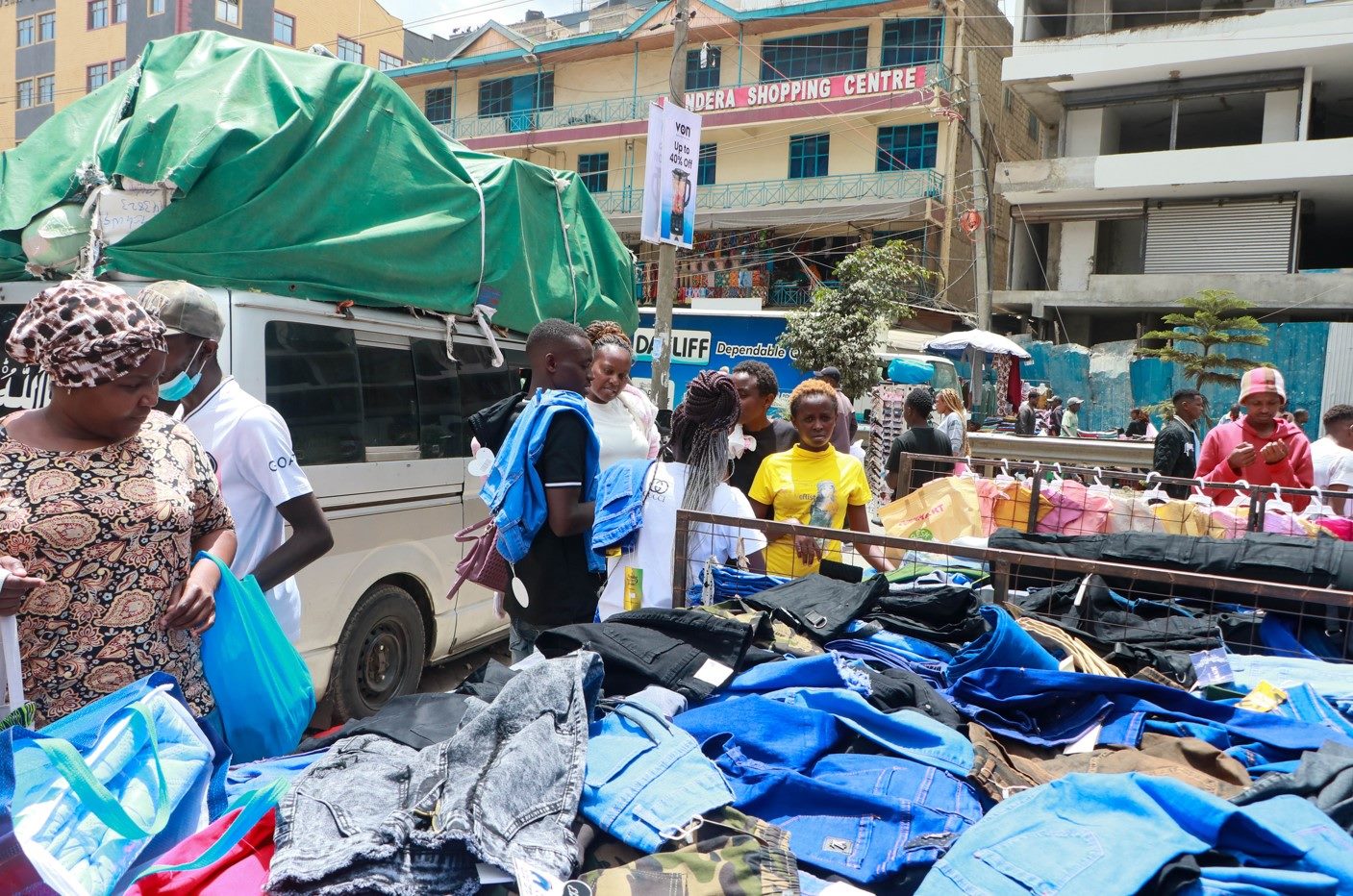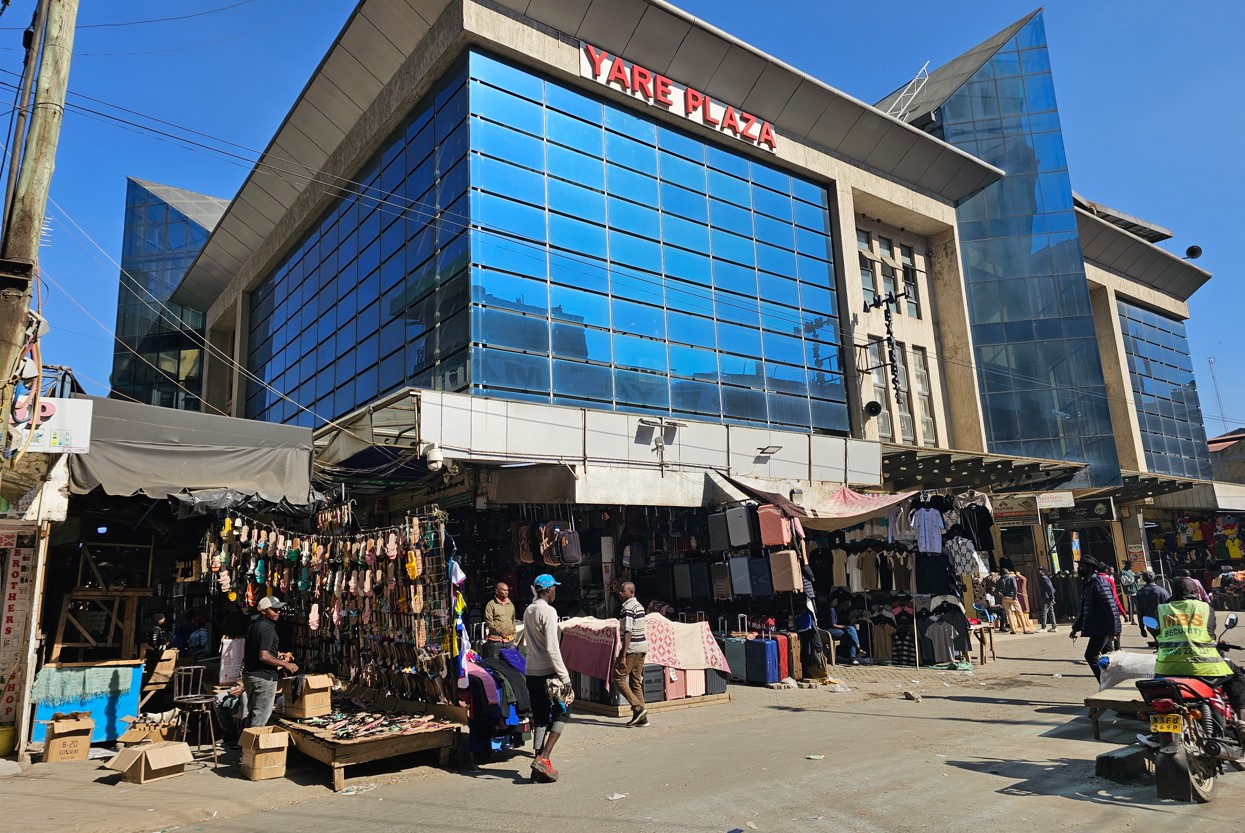Dreams deferred: The loan barrier for Eastleigh traders facing economic hurdles

Lenders, on their part, argue that most small-scale traders lack the financial stability to qualify for loans, especially as they strive to reduce the ballooning number of loan defaults.
Judith, a middle-aged woman, sells clothes along Eastleigh's Garissa market from a wooden 'kibanda' located just beside the road. Every day, she busily calls out to passing customers, hoping they will choose her products over those inside the nearby malls.
While some might wonder why she doesn't have a stall in one of the malls, the answer lies in the economic and societal imbalances that define her situation. Simply put, she cannot afford the monthly rent inside the malls.
More To Read
- MPs push Treasury to curb rising fees on unused foreign loans
- Private sector credit surges to Sh10.7 billion in June as lending recovers
- National Assembly petition seeks to stop banks from charging interest beyond loans
- Nairobi Woman Rep Passaris faces backlash from city traders over anti-protest law proposal
- Loan interest rates drop as CBK moves to scrap risk-based pricing
- Farmers abandon Hustler Fund as CBK report shows shift to banks and digital loans
In her conversation with the reporter, Judith expressed a deep desire to one day rise to a level where she can compete on equal footing with the 'big boys' in the business district—a dream that motivates her to save diligently.
Another option for growth could be seeking loans from lenders. However, when the idea was mentioned, Judith let out a heavy sigh of disappointment, accompanied by a sarcastic laugh.
"For someone like me, it's so frustrating to seek out business loans, especially from traditional lenders like banks," she says. "We often hear encouraging words from brokers and bank agents, promising seamless loan processes, but that’s far from the truth."
She shared that every time she attempted to secure a loan, the process was so cumbersome that she eventually gave up.
Judith’s experience is echoed by her neighbour, who sells shoes. Preferring to remain anonymous, he mentioned that even if he managed to get a loan, the interest rates would be prohibitively high.
"With the current economy, where it's a real struggle to stay afloat both at home and in business, getting into debt is the last thing I want," he said.
 Traders and shoppers are pictured at the Yare Plaza in Eastleigh, Nairobi, on June 25, 2024. (Photo: Abdirahman Khalif/EV)
Traders and shoppers are pictured at the Yare Plaza in Eastleigh, Nairobi, on June 25, 2024. (Photo: Abdirahman Khalif/EV)
In today’s competitive market, experts often highlight that businesses aiming for growth find strategic loans crucial to their expansion efforts. They argue that securing financing is not just about survival but can be a strategic move toward long-term success.
However, for many, this remains a distant dream, fraught with tedious processes and often burdened with expensive repayment terms.
According to Absa Bank, business loans provide the necessary capital for growth initiatives, such as expanding operations, investing in new technology, or entering new markets.
"For many small to mid-sized enterprises, these investments are crucial for maintaining a competitive edge and achieving scalability," Absa Bank stated during an Environmental, Social, and Governance (ESG) engagement forum on Tuesday.
Moving from the business district to the California estate, the Eastleigh Voice spoke to another business owner who also requested anonymity. She runs a small food joint in the area, and her desire to grow is evident as she explains how her customer base grows daily, though her savings are insufficient for sustainable expansion.
"The only option is seeking loans, but lenders sadly don’t trust people like me with substantial credit," she noted.
"My wish is that lenders could trust us and offer credit without so much bureaucracy; that would be a win for us and the economy."
Lenders, on their part, argue that most small-scale traders lack the financial stability to qualify for loans, especially as they strive to reduce the ballooning number of loan defaults.
Data from the Kenya Bankers Association (KBA) shows that bad loans increased by Sh118.1 billion to Sh621.3 billion in the fiscal year ending December 2023, driven by adverse business conditions that caused more businesses and individuals to default on loans.
Somo, a nonprofit organisation that supports Micro, Small, and Medium-sized Enterprises (MSMEs) with access to finance, markets, and training, notes that small-scale businesses in the country show promising signs of progress, with increasing representation and entrepreneurship. However, persistent challenges continue to impede their growth and value addition.
During an economic and sustainability forum organised by Diamond Trust Bank (DTB) last year, a section of small and medium-sized enterprise (SME) sector players urged lenders to stop sidelining them when providing loans.
"Banks have been overlooking us because of our perceived lack of appropriate structures to meet funding requirements, rather than focusing on our sector's production capabilities," said Ciiru Waithaka, CEO of Anjiru, a sustainable manufacturing company.
She added that their sector has also been marginalized due to inadequate business activity tracking and small loan ticket sizes.
According to the Communications Authority (CA), nearly 80 per cent of small businesses in the country fail within their first year of operation when they lack proper financial and strategic support.
The Authority adds that only three to five per cent make it beyond this one year, with the remaining 15 per cent falling into an unpredictable category that has very low chances of survival.
Top Stories Today













































